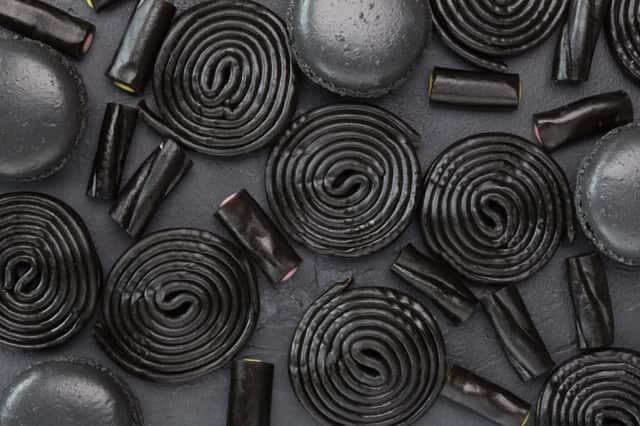These are the possible side effects of eating too much liquorice after doctors link it to man’s death


A construction worker in the US has died after “excessive liquorice consumption”, according to doctors.
Liquorice is a classic sweet treat that many appear to either love or hate.
Advertisement
Hide AdAdvertisement
Hide AdBut is eating black liquorice dangerous? This is what you need to know.
What happened?
In the US state of Massachusetts, a construction worker died after eating too much black liquorice.
The worker, who was 54 years old, reportedly ate around one and a half bags of black liquorice each day. He had suffered no symptoms previously before going into cardiac arrest.
Writing in the New England Journal of Medicine, Dr Elazer R Edelman wrote: “We are told that this patient has a poor diet and eats a lot of candy. Could his illness be related to candy consumption?”
Advertisement
Hide AdAdvertisement
Hide AdThe doctors in the journal said that the glycyrrhizic acid found in black liquorice was to blame.
Dr Edelman’s diagnosis was: “Metabolic, renal, vascular, and cardiac toxic effects from apparent mineralocorticoid excess due to licorice consumption.”
Dr Edelman said studies had shown the glycyrrhizic acid could cause “hypertension, hypokalemia, metabolic alkalosis, fatal arrhythmias, and renal failure”, all of which were found in the patient.
Hypokalemia is when the potassium levels in your blood become dangerously low.
Is it dangerous to eat black liquorice?
Advertisement
Hide AdAdvertisement
Hide AdThe NHS states that yes, eating too much black liquorice can be bad for you, “particularly if you’re over 40 and have a history of heart disease or high blood pressure, or both”.
The NHS explained that consuming more than 57g (two ounces) of black liquorice a day for at least two weeks can lead to potentially serious health problems, such as an increase in your blood pressure and an irregular heart rhythm, also known as arrhythmia.
“No matter how old you are, you should avoid eating large amounts of black liquorice over a short space of time,” the NHS says.
If you’ve been eating a lot of black liquorice and find yourself having heart palpitations, muscle weakness or other health-related problems, you should stop eating it immediately and seek medical advice.
What is it about black liquorice that’s dangerous?
Advertisement
Hide AdAdvertisement
Hide AdThere is a compound found in liquorice root called glycyrrhizin, which is between 30 and 50 times sweeter than sugar. Glycyrrhizin can also alter your body’s levels of potassium and sodium.
Victoria Taylor, a British Heart Foundation dietitian, says: “Too much glycyrrhizin can therefore lead to problems such as raised blood pressure, fluid retention, muscle weakness and heart rhythm abnormalities.”
The good news is that if you find yourself experiencing these effects from black liquorice consumption, these changes are generally not permanent.
“Stop consuming liquorice and your levels of sodium, potassium and fluid should return to normal,” Taylor explains.
Advertisement
Hide AdAdvertisement
Hide AdYou should still talk to your doctor about these effects however.
Is red liquorice dangerous?
Interestingly enough, red liquorice isn’t actually liquorice at all.
Where black liquorice is flavoured from the extract of the liquorice plant, which is where the glycyrrhiza compound is found, red liquorice is made using other fruit or artificial flavourings and doesn’t contain any of the liquorice plant.
Therefore red liquorice would not have the same effects on you in comparison to black liquorice.
A version of this article originally appeared on our sister title The Star